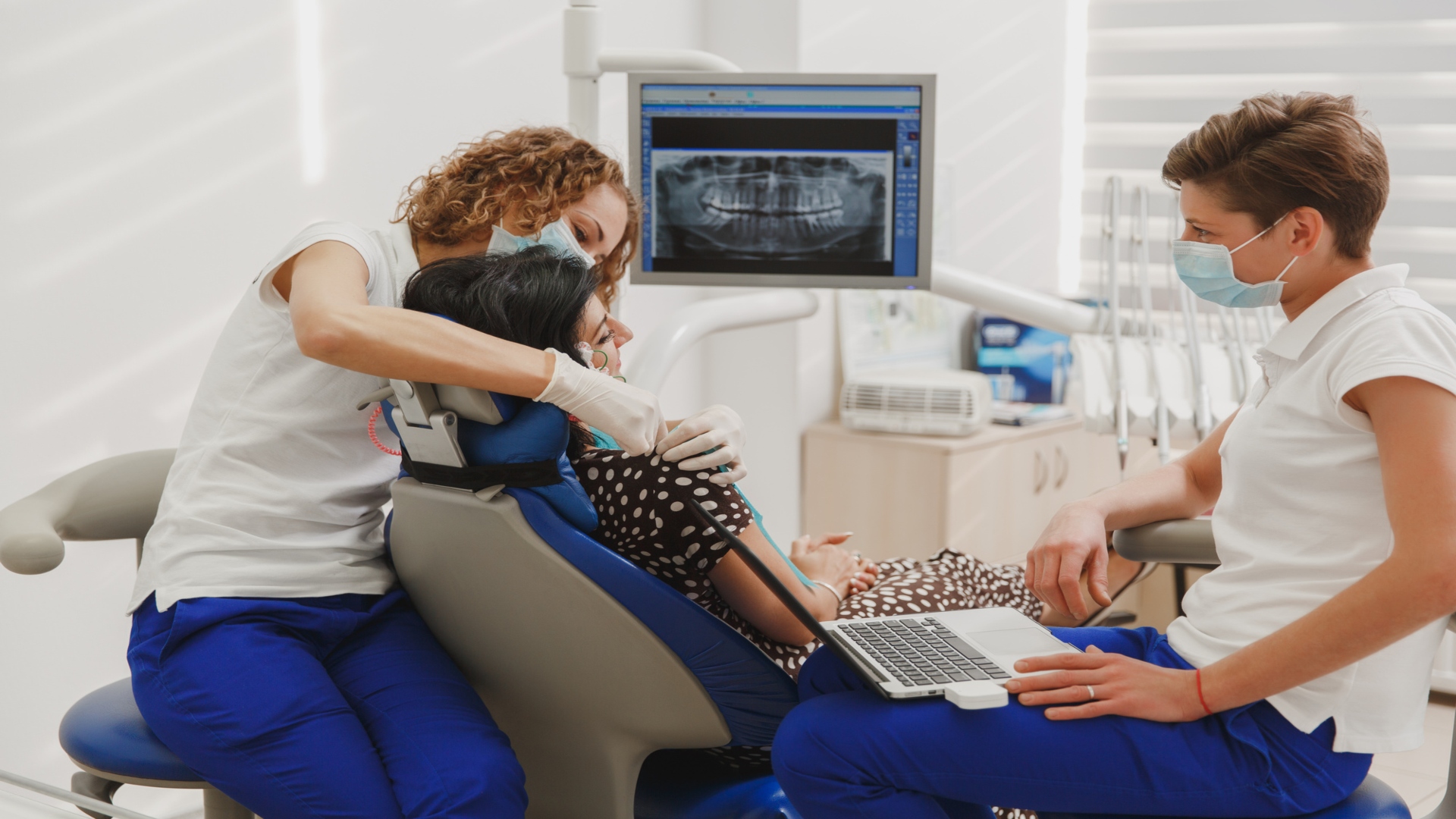Jaw disorders can significantly impact an individual’s quality of life, leading to discomfort, difficulty chewing, and even persistent pain. One innovative approach to addressing these issues is neuromuscular dentistry. This field focuses on correcting jaw misalignment by understanding and working with the muscles and nerves in the jaw and face. The goal is to alleviate pain and improve overall function and comfort.
Understanding Jaw Disorders
Before going into neuromuscular dentistry, it’s crucial to understand the basics of jaw disorders. Conditions like Temporomandibular Joint Disorders (TMD) or bruxism (teeth grinding) can lead to symptoms such as:
- Chronic jaw, face, or neck pain
- Difficulty in opening and closing the mouth
- Clicking or popping sounds in the jaw joint
- Frequent headaches or earaches
My local dentist in Canton says that these symptoms can stem from various causes, including stress, injury, or teeth and jaw misalignment.
The Role Of Neuromuscular Dentistry
Neuromuscular dentistry addresses these symptoms by ensuring the jaw is properly aligned. This alignment is crucial because it can affect the teeth, muscles, and nerves surrounding the jaw. By focusing on the entire system, rather than just the teeth or jawbone, neuromuscular dentistry seeks to create a balanced, functional bite.
How It Works
Neuromuscular dentists use a combination of technology and techniques to diagnose and treat jaw disorders. These may include:
- Jaw tracking analysis: Measures the movement of the jaw to identify any irregularities.
- Electromyography (EMG): Assesses the health and function of the jaw muscles.
- Sonography: Detects any sounds in the jaw joint which can indicate problems.
After thorough analysis, treatment might involve adjusting the bite, exercising, or even using special appliances to reposition the jaw.
Benefits Of Neuromuscular Dentistry
Patients who have turned to neuromuscular dentistry often report significant improvements. These benefits can include:
- Reduced Pain And Discomfort: By addressing the root cause of jaw disorders, patients can experience relief from chronic pain.
- Improved Jaw Function: Correcting the alignment can make chewing and speaking easier and more comfortable.
- Better Overall Health: Jaw disorders can affect other areas of health, leading to issues like sleep disturbances or chronic headaches. Neuromuscular dentistry can help alleviate these related problems.
What To Expert
When visiting a neuromuscular dentist, patients can expect a comprehensive evaluation. This may include a detailed discussion of symptoms, a physical examination of the jaw and mouth, and possibly the diagnostic technologies mentioned earlier. Treatment plans are personalized, depending on the individual’s needs and conditions.
Improving Function And Comfort: Neuromuscular Dentistry For Jaw Disorders
Jaw disorders are not just a mere inconvenience; they can significantly affect one’s quality of life, causing discomfort, difficulty in chewing, and even persistent pain. Neuromuscular dentistry emerges as a beacon of hope for those affected, offering a way to correct jaw misalignment by focusing on the harmony between muscles, nerves, and the skeletal structures of the jaw and face. The goal is to alleviate pain and enhance overall function and comfort, paving the way for a better quality of life.
Neuromuscular Dentistry: A Closer Look
At the heart of neuromuscular dentistry is the pursuit of optimal bite and jaw alignment, which is crucial for the overall harmony of the dental system. This specialized field extends beyond traditional dental care by considering the complex interplay between teeth, jaw, muscles, and nerves.
Diagnostic And Treatment Modalities
Neuromuscular dentists employ advanced technology and techniques to effectively diagnose and treat jaw disorders. Key tools and methods include:
- Jaw Tracking Analysis: This technology maps the jaw path, highlighting abnormal movements.
- Electromyography (EMG): This technique evaluates the condition of jaw muscles, identifying areas of tension or dysfunction.
- Sonography: By listening to the sounds within the jaw joint, this method can pinpoint issues that might not be visible on scans.
Treatment might involve bite adjustment, therapeutic exercise, or oral appliances to guide the jaw into a more natural position.
Broadening The Scope: Integrative Approaches
Integrating lifestyle modifications and supportive therapies can significantly enhance the outcomes of neuromuscular dentistry treatments. Recommendations may include:
- Stress Management Techniques: Since stress can aggravate jaw disorders, incorporating relaxation techniques such as meditation or yoga can be beneficial.
- Dietary Adjustments: During periods of acute symptoms, opting for softer foods can help minimize jaw strain.
- Physical Therapy: Specific exercises designed to strengthen and relax the jaw muscles can complement the treatment plan, promoting faster recovery and lasting relief.
Final Thoughts
Neuromuscular dentistry offers a holistic approach to treating jaw disorders, focusing on the relationship between the teeth, jaw, muscles, and nerves. It goes beyond traditional dental treatments by addressing the root causes of pain and dysfunction. For those struggling with jaw-related issues, neuromuscular dentistry can be a pathway to improved comfort and quality of life. With the right diagnosis and treatment plan, patients can enjoy the benefits of a balanced, functional jaw system.


















